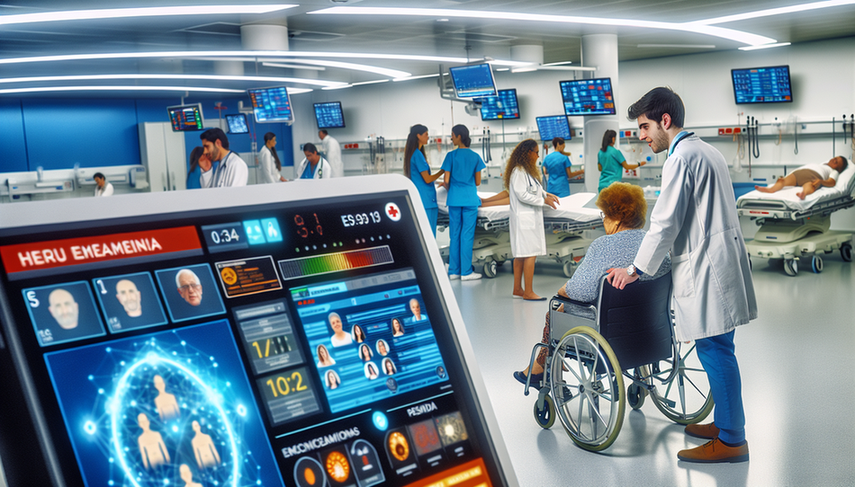AI in Emergency Care: Automated Triage and Early Warning Systems for Enhanced Patient Classification

The integration of artificial intelligence (AI) in emergency care is revolutionizing the way automated triage is conducted and how early warning systems are implemented for patient classification. These technological advancements promise to enhance efficiency and accuracy in medical care, allowing for better resource management and faster, more appropriate care for critical patients.
Advances in Automated Triage and Early Warning Systems
The use of AI in emergency triage has proven to be more accurate than traditional methods. A recent study developed a machine learning tool that surpasses conventional triage systems in predicting short-term mortality, providing early and precise estimates of patients' risk of death. This tool, known as SERP, has demonstrated superior performance compared to several established triage systems.
Additionally, AI algorithms have been developed to predict the need for critical care in prehospital emergency services. A study in South Korea validated an AI algorithm that uses patient data to accurately predict the need for critical care, outperforming conventional triage tools and early warning scores.
In the context of the COVID-19 pandemic, a machine learning model was implemented to predict hospital mortality in COVID-19 patients at the time of their emergency admission. This model utilizes blood analysis data and chest X-ray scores to provide a risk calculation that can be used in the triage process.
Conclusions
The implementation of AI in automated triage and early warning systems in emergency care presents a significant opportunity to improve patient classification and optimize medical care. Although there are ethical, legal, and technical challenges that must be addressed, the potential of AI to transform clinical workflows is evident. As these technologies are validated and more widely adopted, we are likely to see continuous improvements in the care of patients in critical situations.
Referencias
- [1] Development and Assessment of an Interpretable Machine Learning Triage Tool for Estimating Mortality After Emergency Admissions
- [2] Artificial intelligence algorithm to predict the need for critical care in prehospital emergency medical services
- [3] Early prediction of in-hospital death of COVID-19 patients: a machine-learning model based on age, blood analyses, and chest x-ray score
Created 24/1/2025
